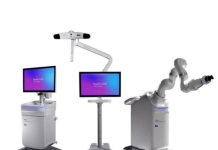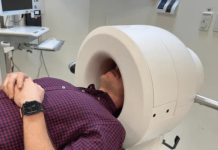Maui Imaging announced that it raised $14 million in a Series D financing round to support its echo tomography-based imaging technology.
Acertara Acoustic Laboratories led the funding round for the Tucson, Arizona-based company. It plans to use funds to support the production, sales and marketing efforts for its imaging platform.
Related: Tricuspid repair startup Versa Vascular raises $27.3 million
Maui Imaging emerged from Stealth nearly a year ago with a $4 million contract from the U.S. Dept. of Defense. The contract covered support for trauma medicine across four branches of the military aiming to enable faster diagnosis and interventional care in high-volume or mass casualty events and resource-limited environments.
In October 2023, the company first received FDA 510(k) clearance for its Maui K3900 device. The ultrasound imaging system utilizes an approach that results in a cross between ultrasound and CT without the need for ionizing radiation. Maui’s CET “pings” the designated part of the body to visualize anatomy “beyond what other ultrasound systems can produce.”
Then, the system uses proprietary algorithms to accommodate the reflected energy from various flight paths. It sums the data to create a reliable image of all the structures below the probe. Maui currently has clinical studies underway with the military and elsewhere to fully demonstrate the system’s capabilities.
Maui uses a concave probe that fires pulses into the tissue from multiple angles, allowing it to see through and around traditional barriers. Its aperture scan can also come in much larger than other traditional probes due to not needing to navigate between barriers.
The company believes the volumetric imaging method can significantly expand the role of ultrasound in AI-driven diagnostics.
“With this support and our work with the U.S. military we are able to address the clear need for a new ultrasound-based technology to image all types of tissues,” said Maui Imaging CEO and co-founder David Specht. “That need is most pronounced in trauma medicine, which is a major focus for us. MAUI will also be able to supply the volumetric imaging data for increasingly accessible and advanced AI tools that stand to transform medicine.”




